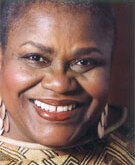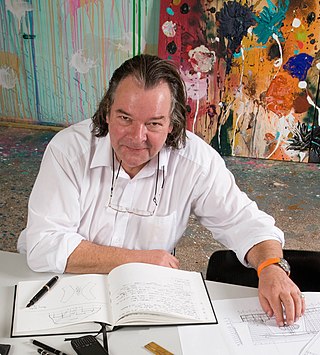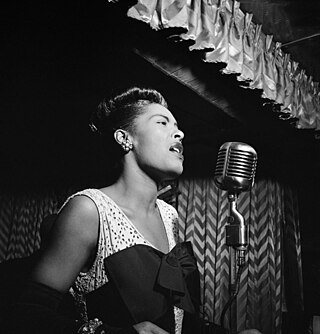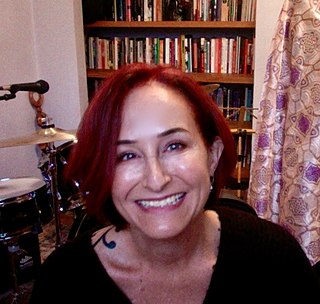Related Research Articles
Musicology is the scholarly analysis and research-based study of music. Musicology departments traditionally belong to the humanities, although some music research is scientific in focus. Some geographers and anthropologists have an interest in musicology, so the social sciences also have an academic interest. A scholar who participates in musical research is a musicologist.

Bernice Johnson Reagon is a song leader, composer, scholar, and social activist, who in the early 1960s was a founding member of the Student Non-violent Coordinating Committee's (SNCC) Freedom Singers in the Albany Movement in Georgia. In 1973, she founded the all-black female a cappella ensemble Sweet Honey in the Rock, based in Washington, D.C. Reagon, along with other members of the SNCC Freedom Singers, realized the power of collective singing to unify the disparate groups who began to work together in the 1964 Freedom Summer protests in the South.
"After a song", Reagon recalled, "the differences between us were not so great. Somehow, making a song required an expression of that which was common to us all.... This music was like an instrument, like holding a tool in your hand."

William Allen Alsop was a British architect and Professor of Architecture at University for the Creative Arts's Canterbury School of Architecture.
Beat music, British beat, or Merseybeat is a British popular music genre that developed, particularly in and around Liverpool, in the late 1950s and early 1960s. The genre melded influences from British and American rock and roll, rhythm and blues, skiffle, traditional pop and music hall. It rose to mainstream popularity in the UK and Europe by 1963 before spreading to North America in 1964 with the British Invasion. The beat style had a significant impact on popular music and youth culture, from 1960s movements such as garage rock, folk rock and psychedelic music to 1970s punk rock and 1990s Britpop.

Lizabeth Cohen is the current Howard Mumford Jones Professor of American Studies in the History Department at Harvard University, as well as a Harvard University Distinguished Service Professor. From 2011-2018 she served as the Dean of Harvard's Radcliffe Institute for Advanced Study. Currently, she teaches courses in 20th-century America, with a focus on urbanism, the built environment, and public history. She has also served as the Chair of the History Department at Harvard, director of the undergraduate program in history, and director of the Charles Warren Center for Studies in American History, among other administrative duties.
Georgina Emma Mary Born, is a British academic, anthropologist, musicologist and musician. As a musician she is known as Georgie Born and for her work in Henry Cow and with Lindsay Cooper.
Susan Pedersen is a Canadian historian, and James P. Shenton Professor of the Core Curriculum at Columbia University. Pedersen focuses on 19th and 20th century British history, women's history, settler colonialism, and the history of international institutions.
Tara Brabazon is the Australian Dean of Graduate Research and the Professor of Cultural Studies at Flinders University in Adelaide, Australia, a fellow of the Royal Society for the Encouragement of Arts, Manufactures & Commerce and director of the Popular Culture Collective. She has previously held academic positions in the UK, New Zealand and Canada, won six teaching awards, published 20 books, written 250 refereed articles and contributed essays and opinion pieces on higher education and the arts. She was made a Member of the Order of Australia in 2019.
Helena Wulff is professor of social anthropology at Stockholm University. Her research is in the anthropology of communication and aesthetics based on a wide range of studies of the social worlds of literary production, dance, and the visual arts.
Beverley Skeggs is a British sociologist, noted as one of the foremost feminist sociologists in the world. Currently, she works as a "Distinguished Professor" in the Sociology Department at Lancaster University, developing a Center for Social Inequalities in the North West of England. She continues to run the "Economics of Care" theme at the International Inequalities centre at the London School of Economics (LSE) and is a visiting professor at Goldsmiths University. She has been the head of two of the UK’s leading Sociology Departments, at the University of Manchester and Goldsmiths, as well as co-director of Lancaster's Women's Studies. In addition, she played a part in transforming Britain's oldest sociology journal, The Sociological Review, into an independent foundation devoted to opening up critical social science and supporting social scientists.
Lynn Schofield Clark, Ph.D., is a media critic and scholar whose research focuses on media studies and film studies. She is Distinguished Professor in the Department of Media, Film, and Journalism Studies at the University of Denver. She is a prize-winning author of several books and articles on the role social and visual media play in the lives of diverse U.S. adolescents. In her 2017 book co-authored with Regina Marchi, Young People and the Future of News, Clark and Marchi utilize an ethnographic approach to tell the stories of how young people engage with social media and legacy media both as producers and consumers of news. The book received the 2018 Nancy Baym Book Award from the Association of Internet Researchers and the 2018 James Carey Media Research Award from the Carl Couch Center for Social and Internet Research Clark's book regarding parenting in the digital age is titled The Parent App: Understanding Families in a Digital Age. Clark’s main contributions are in the areas of family media studies, media rich youth participatory action research and the mediatization (media) of world religions.
Karen McCarthy Brown was an anthropologist specializing in the anthropology of religion. She is best known for her groundbreaking book Mama Lola: A Vodou Priestess in Brooklyn, which made great strides in destigmatizing Haitian Vodou. Until her retirement in 2009 due to illness, McCarthy Brown was a Professor of Anthropology at Drew University. At Drew University, McCarthy Brown was the first woman in the Theological School to receive tenure and to achieve the rank of full professor.

Women in music include women as composers, songwriters, instrumental performers, singers, conductors, music scholars, music educators, music critics/music journalists, and in other musical professions. Also, it describes music movements, events and genres related to women, women's issues, and feminism.
Celia Margaret Britton, FBA is a British scholar of French Caribbean literature and thought. She was Carnegie Professor of French at the University of Aberdeen from 1991 to 2002 and Professor of French at University College London from 2003 to 2011. She had previously lectured at King's College London and the University of Reading.
Ruth Katz is an Israeli musicologist, a pioneer of academic musicology in Israel, professor emerita at the Hebrew University of Jerusalem. She has been a corresponding Member of the American Musicological Society since 2011. She was named laureate of the Israel State Prize in 2012.
Lucy Robinson is an academic historian whose work examines the history of sexuality, identity politics, youth cultures and the political Left in the twentieth century. She is Professor in Collaborative History at the University of Sussex, as of 2018.
Frederic Basil Rowley Smallman, commonly known as Basil Smallman, was an English music scholar.
The James and Constance Alsop Professorship of Music at the University of Liverpool was established in 1946; prior to that time, music teaching had been confined to the Department of Education but the new chair marked an attempt to "coordinate the study of music within the University and stimulate interest by lectures and other appropriate instruction". The first holder was Gerald Abraham, who had been director of the BBC's Gramophone Department. The chair was named for Alderman James W. Alsop, OBE, a major figure in the university's establishment and early administration.
Judith Rita Cohen is a Canadian ethnomusicologist, music educator, and performer. Her research interests include Judeo-Spanish (Ladino) songs; medieval and traditional music from the Balkans, Portugal, French Canada, and Yiddish; pan-European balladry; and songs from Crypto-Jewish regions in Portugal. She has received numerous research and travel grants to do fieldwork in Spain, Portugal, Morocco, Israel, Turkey, Greece, France, Belgium, Canada, and the United States, and has published many journal articles, papers, and book chapters. She plays a variety of medieval musical instruments, and sings and performs as part of her lectures and in concerts and solo recitals. She is also the editor of the Alan Lomax Spanish collection maintained by the Association for Cultural Equity.

Debbie Klein is an American anthropologist and social justice advocate. She is a professor in the Anthropology Department at Gavilan College. Since 1990, Klein has been conducting extensive collaborative research in Nigeria with Yorùbá performing artists. Recognizing Klein's decades of collaborative written and video documentation of Yorùbá culture, the town of Èrìn-Ò
References
- ↑ "Sara Cohen", University of Liverpool. Retrieved 29 December 2018.
- ↑ Laurie Taylor, "Mersey soundings", New Statesman and Society (London), vol. 4, no. 148 (26 April 1991), p. 29.
- ↑ "Professor Sara Cohen awarded James and Constance Alsop Chair in Music", University of Liverpool, 11 May 2017. Retrieved 29 December 2018.
- ↑ "Society and culture in the making of rock music in Merseyside", EThOS (British Library). Retrieved 29 December 2018.
- ↑ David Laing, review of Sara Cohen's Decline, Renewal and the City in Popular Music Culture, Popular Music, vol. 27, no. 3 (2008), pp. 487-88.